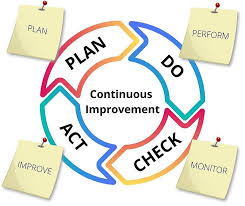Pre-doctoral career advisory program
CIC nanoGUNE is committed to enabling our PhD students to achieve the best possible record in research as well as developing science & industry soft skills. With the goal of fostering a reflection about their activities at about the midpoint of their research work, PhD students are invited and encouraged to participate in the Mid-term program between months 15 and 20 of their PhD period.
Formally, the Mid-term program it is structured as a series of nanoPeople tasks. PhD students will be reminded of starting their Mid-term program during month 14 by receiving the following task in nanoPeople: “01.Interested in mid-term program?”, in which each PhD student decides on their participation.
The completion of this 01.task will activate the Mid-term update program that involves the PhD student, Career Advisor(s) and Discussion Partners, who are either Senior Scientists or Fellows at nanoGUNE. A PhD student, who rejects Mid-term program participation can still participate in the second portion of the Career Advisory Program, which starts with step 07., and at which point a PhD student can decide to participate in the 2nd phase of the Career Advisory Program or not.
(step 02. is a formal step, handled by nanoGUNE’s administration)

Mid-term program
The Mid-term program consists of the following sequential steps:
(step 05. is a formal step, handled by nanoGUNE’s administration)
|
Career Advisor(s): |
06. Notification of Mid-term program completion (uploaded files can be found under CIC57 projects named Career Advisory program) |

Career advisory program
Start of the 2nd phase of the Career Advisory Program
|
07. Participation decision and filling of the Individual Professional Development Form: This document is designed to aid the professional development discussion, by collecting information about the PhD Student capabilities and professional development expectations. The fields under "Describe your capabilities" and "Professional development expectations" are not compulsory. Fill out the fields that you want to fill out. |
|
|
Career Advisor(s): |
08. Individual Professional Development Form Acknowledgement |
|
09. Propose an initial meeting |
|
|
10. Meeting to define professional expectations and to establish a support plan: After this meeting, the PhD student will fill out the professional expectation support plan, containing actions that will be carried out to support the professional development of the PhD student. These actions should be agreed upon first with the Career Advisor and only then, the documentation should be filled out online and the administrative step completed. |
|
|
Career Advisor(s): |
11. Confirmation of support plan |
Upon agreeing on the support plan, the plan will be followed and its defined actions taken. Thus, it is expected that there is a considerable period in between steps 11. and 12., even if an administrative task associated with step 12. is generated right away upon completing step 11.
|
12. Propose a feedback meeting |
|
|
13. Professional development feedback meeting + update support plan: After the feedback meeting, the PhD student will update the professional expectation support plan, that was agreed upon with the Career Advisor, and then complete this administrative step. |
|
|
Career Advisor(s): |
14. Confirmation of updated support plan |
|
15. Do you want to continue the program? Here, the PhD student can decide to continue with the Career Advisory program or end it. |
|
|
16. Did your expectations change? PhD students, who want to continue, will be asked if their general career expectations have changed and accordingly, they will either proceed by continuing to execute their updated support plan and have subsequent feedback meetings, i.e. step 12ff. (no general expectation change), or they will redefine their changed expectations by filling out a new Individual Professional Development Form, i.e. step 07ff. (the generation of the related tasks will be done by the administration). |
Please, pay attention to the description of each task in nanoPeople before changing its status and follow the indicated instructions.

For more information please contact:
- Andreas Berger, a.berger@nanogune.eu
- Itziar Otegui, i.otegui@nanogune.eu
- Laura Benedetti, l.benedetti@nanogune.eu
Related info
Processes
Collaboration
NanoGUNE establishes the guidelines of the collaborative field from the corporate strategy process, considering this activity as a key support for the achievement of the vision of the organization. These guidelines are developed with the objective of establishing alliances or collaborations with different organizations and stakeholders capable of offering synergistic benefits to nanoGUNE's activity. Through this activity, the organization can evaluate the added value of collaboration against its own collaborative capacities, fostering the optimal decision.

Key policies
Since its creation in 2006, nanoGUNE's research activity focuses not only on carrying out excellent research, but also on the transfer of knowledge and technology to its industrial environment.
The main objectives of nanoGUNE are the following:- To lead, support and coordinate research in nanoscience and nanotechnology in the Basque Country.
- To promote technology transfer and the development of a nanotechnology-based Industry.
- To support new academia curricula and high-level training of researchers in nanoscience and nanotechnology.
- To foster networking and the creation of alliances with institutions and regions all over the world.
- To strengthen the social use of research and the public understanding of science, including science and society issues.
You will find below the Mission, vision and core values of nanoGUNE, and the links to the main key policies.
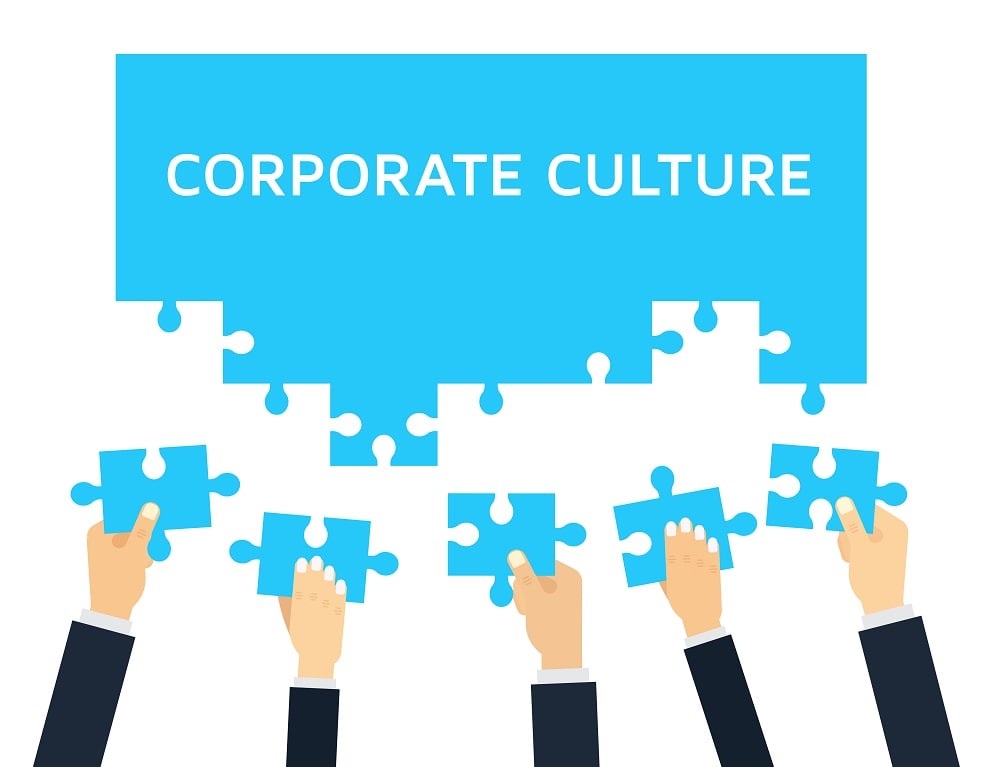
Innovation Management System
NanoGUNE's management is organized around an Innovation Management System (IMS), certified under the standard UNE 166002:2014.
A system of this nature enables organizations to be more innovative and make their innovations in products, services, processes, organizational designs or business models more successful, contributing this way to improve their results, value and competitiveness. The management policy provides a reference framework for the establishment of Research & Development & innovation objectives and includes the commitment to continual improvement of the IMS.
The Finance Director is the responsible for the IMS.
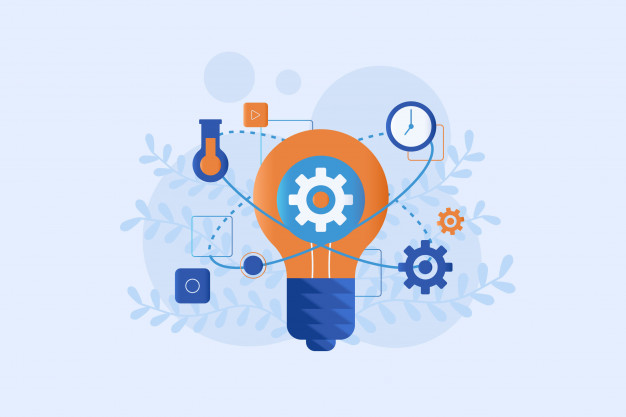
Corporate compliance
NanoGUNE has developed and implemented a Criminal Risk Prevention Program to promote an institutional and corporate culture of compliance (Corporate Compliance), aiming to achieve orderly and responsible management as activities are undertaken at nanoGUNE, as well as striving for a culture of integrity, honesty, transparency, and respect for ethical standards and rules. Likewise, nanoGUNE intends to show its absolute rejection of any irregular behaviour in the development of its activities, mainly those conducts that by their nature may constitute a potential crime, whose prevention is the Program's primary objective.
Therefore, this Program is made up of different documents which are all framed under nanoGUNE's Corporate Compliance efforts. Via this website, we make both the nanoGUNE Code of Ethics and the Whistleblower Channel available to any third party who is interested in these elements.
The Finance Director is the Compliance Officer of nanoGUNE.

Grants
NanoGUNE projects office is responsible for the management of the grants awarded to the center for the development of research projects.
Dr. Yurdana Castelruiz is the Projects Manager. Ainara Azurmendi is the Projects Assistant.

Personal data processing
The Regulation (EU) 2016/679 of the European Parliament and of The Council of 27 April 2016 is intended to guarantee and protect natural persons with regard to the processing and free movement of personal data. This Regulation applies to the processing of personal data wholly or partly by automated means and to the processing other than by automated means of personal data which form part of a filing system or are intended to form part of a filing system.
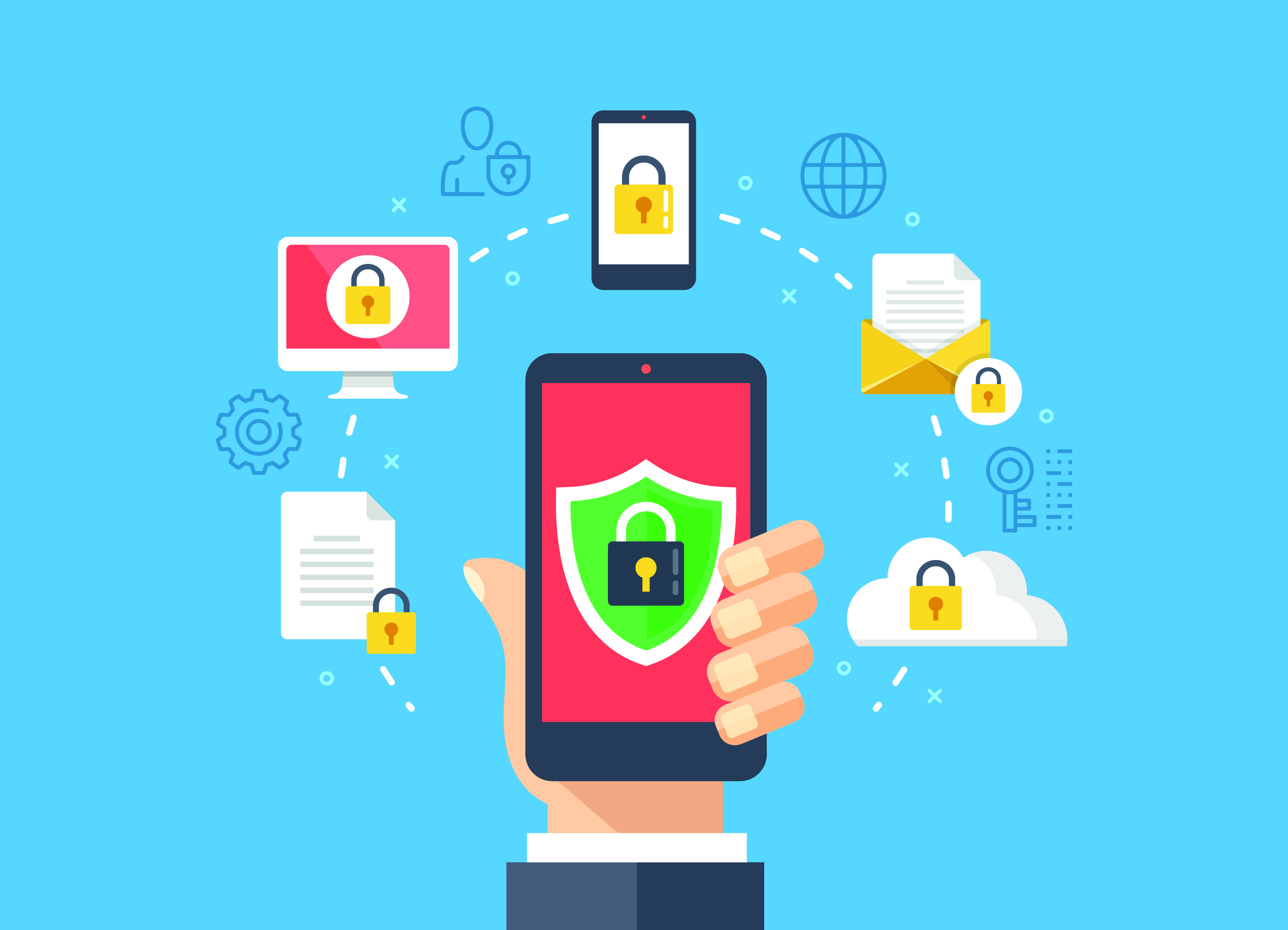
nanoGUNE Alumni
The dynamic collaboration and networking community of nanoGUNE's current and former employees. JOIN NOW and continue to grow your professional network on a global scale.
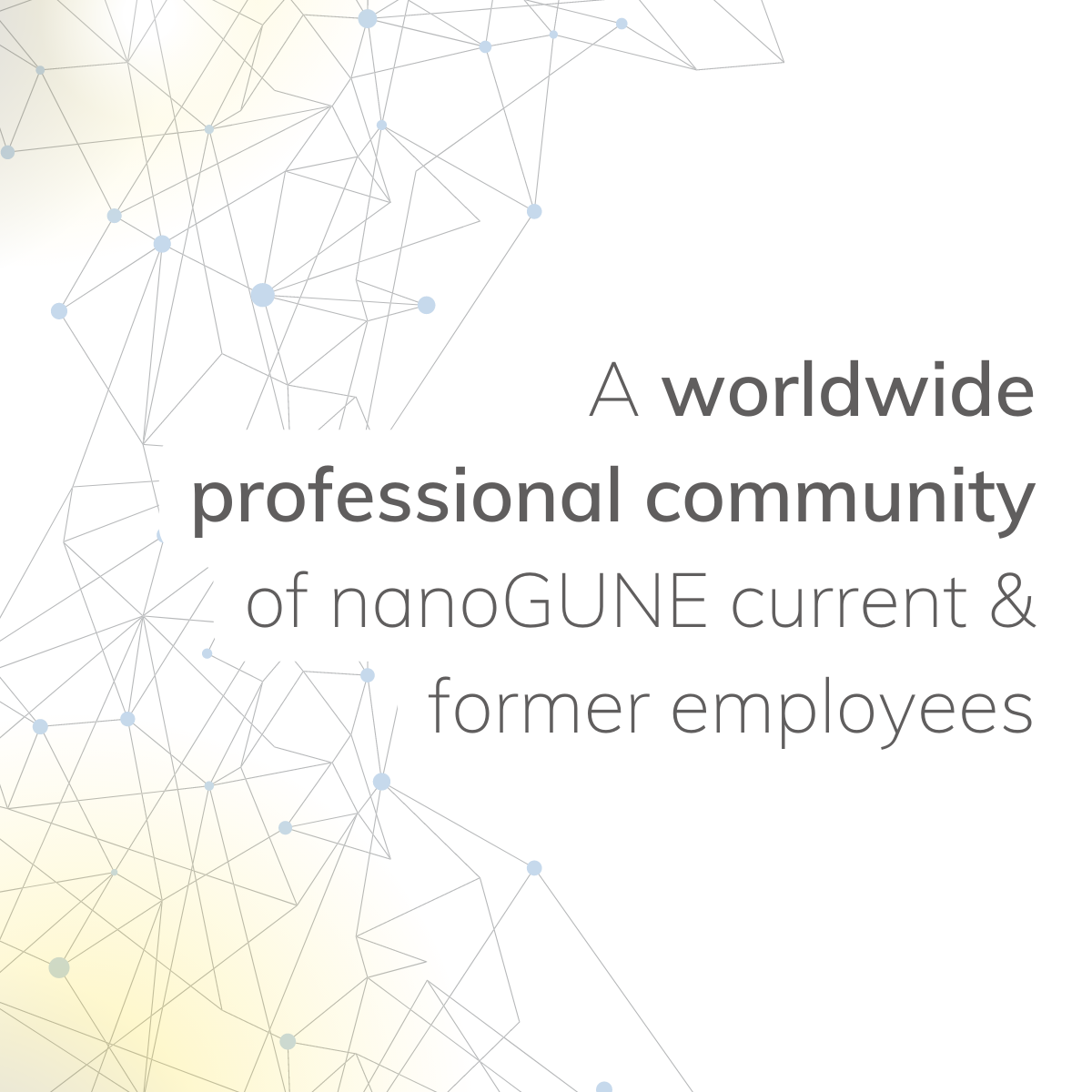
Calendar and timetable
Useful information about nanoGUNE calendar and timetables. Leave and trip requests must be authorised by the superior through Tasks.

Employees
Through the following links you can access to personnel management tools:

Gender Equality
Our vision is to achieve an effective gender equality within our organization, by reversing the existing structural factors that trigger inequalities and building up a working environment free of gender bias, sexist attitudes, and sexual harassment.
Furthermore, we expect to contribute actively to the construction of a more egalitarian scientific and technological environment that incorporates the perspective of all genders, thus contributing to the development of a society were all people will have equal opportunities.
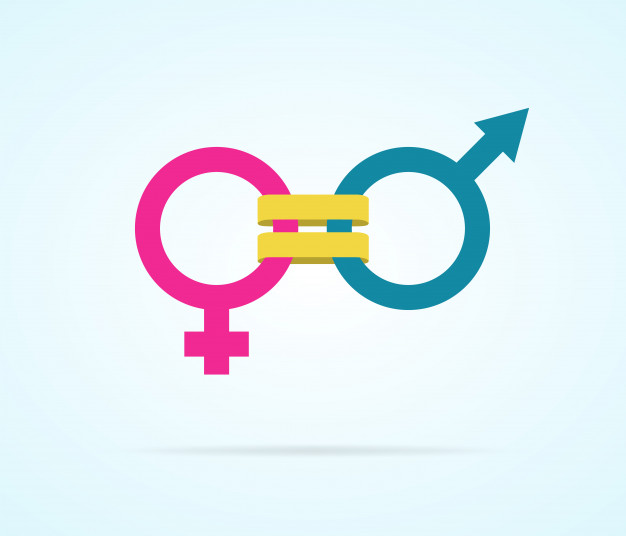
Health, taxation, and administrative procedures
In this section you will find useful information on how to manage the administrative, tax, and health processes that you must carry out when joining the center.
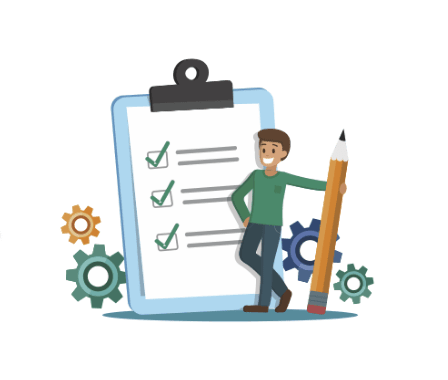
Life in San Sebastián
With the aim of making the newcomers incorporation as comfortable as possible, through this section we provide you some information about accommodation, transport, food services and socio-cultural data of San Sebastián. In the same way, we encourage you to write to us if you have any question or you need more information.
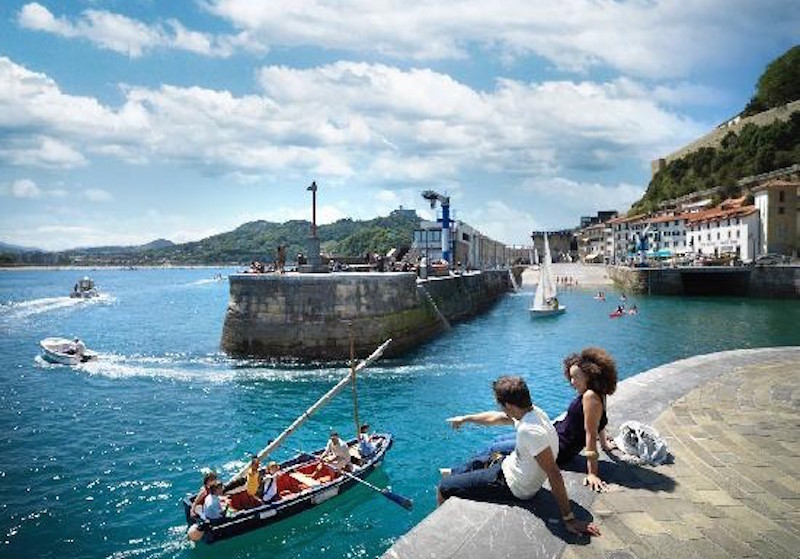
Post-doctoral Researchers
The Post-doctoral Career Advisory Program service is envisaged to Post-doctoral Researchers that are interested in receiving career advice and guidance by their Senior Scientist supervisor.

Pre-doctoral Researchers
The mission of nanoGUNE's PhD committee is to support and assist nanoGUNE's PhD students during their career at nanoGUNE.
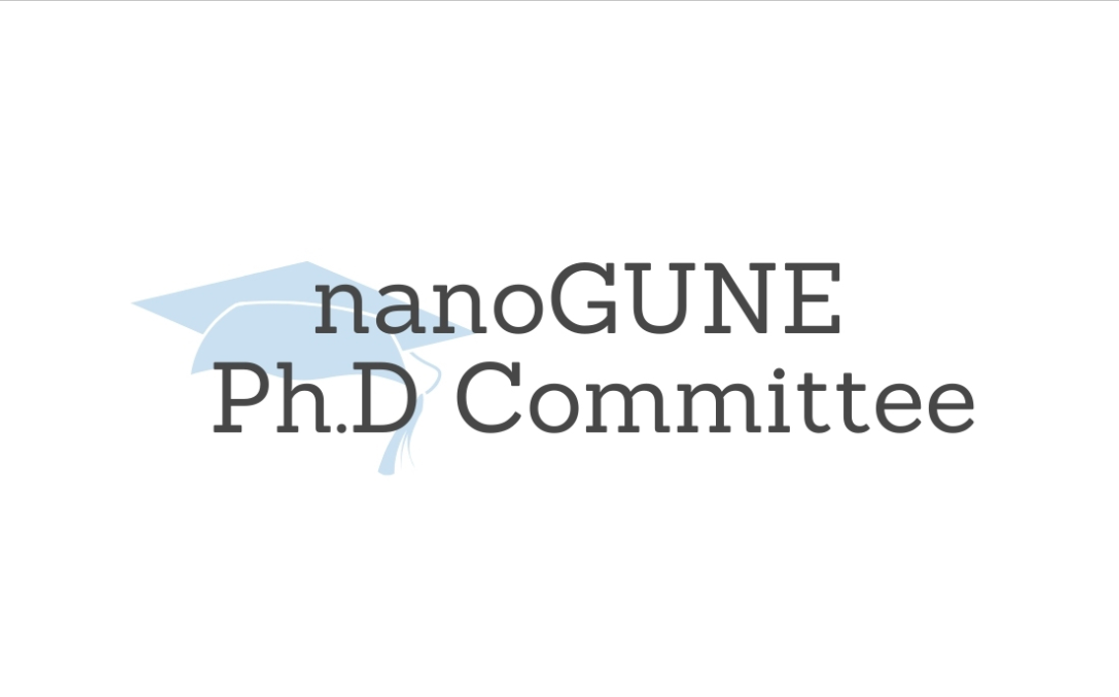
Recruitment
NanoGUNE is committed with fair and transparent recruitment procedures. We provide assistance with all legal issues related to the authorisation to work in Spain. We help our newcomers with a soft landing at nanoGUNE by giving them advise about all the administrative paperwork. We have in place an Outplacement service to researchers that are willing to pursue their career towards industry, and in particular, to companies in the Basque Country.

Training
NanoGUNE is committed to providing its researchers with the necessary tools to make the most of their stay at the center, offering high level training to its researchers, specially to the younger ones, as well as other tools to facilitate their integration into the local community.
To achieve this, we offer academic seminars, technical trainings, transversal skills trainings, Spanish and Basque language classes at different levels, and much more.

Travel and reimbursements
Business trips and conference attendance travels must be organised through the travel agency appointed by nanoGUNE. Prior authorisation by the superior is required. A reimbursement of the expenses related to the business activity at nanoGUNE could be requested.

Health & Safety

NanoGUNE is committed to safety at work. All measures legally required have been implemented and are bound to all employees (Law 31/1995 on the Prevention of Occupational Risks, RD 39/1997).
The Facilites Manager, Gorka Arregui (g.arregui@nanogune.eu), is the Emergency Coordinator in nanogune. Raquel Olmos (r.olmos@nanogune.eu) is the interlocutor of Health and Safety. Together, with the collaboration of IMQ Prevención that has been designated as the external prevention service, coordinates the health and safety at nanoGUNE.
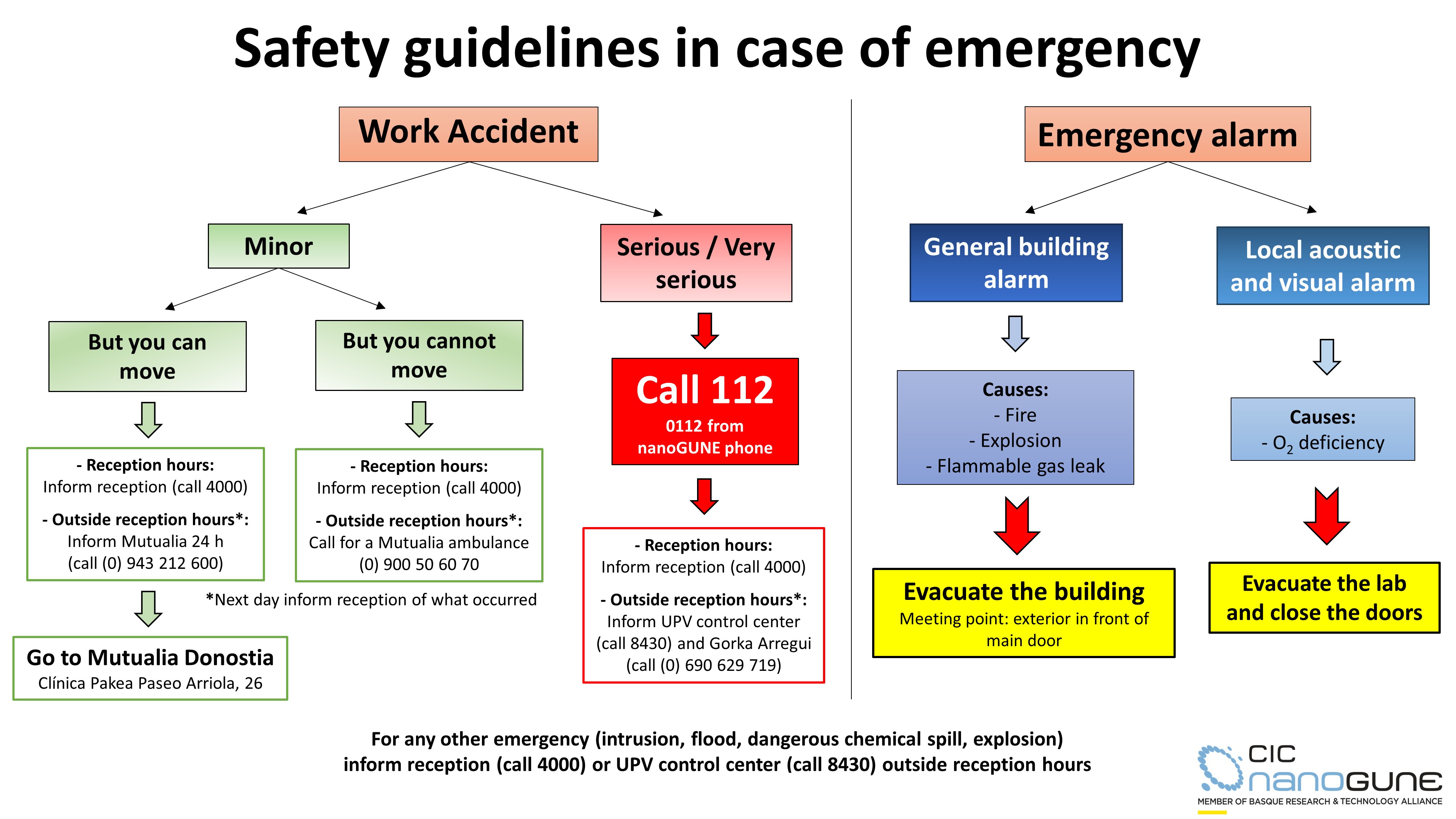
Prevention plan
The Occupational Risk Prevention Plan is a tool to bring together the preventative actions undertaken by CIC nanoGUNE and to establish the Occupational Risk Prevention Policy. Moreover, the H&S staff roles are described in the following documents.
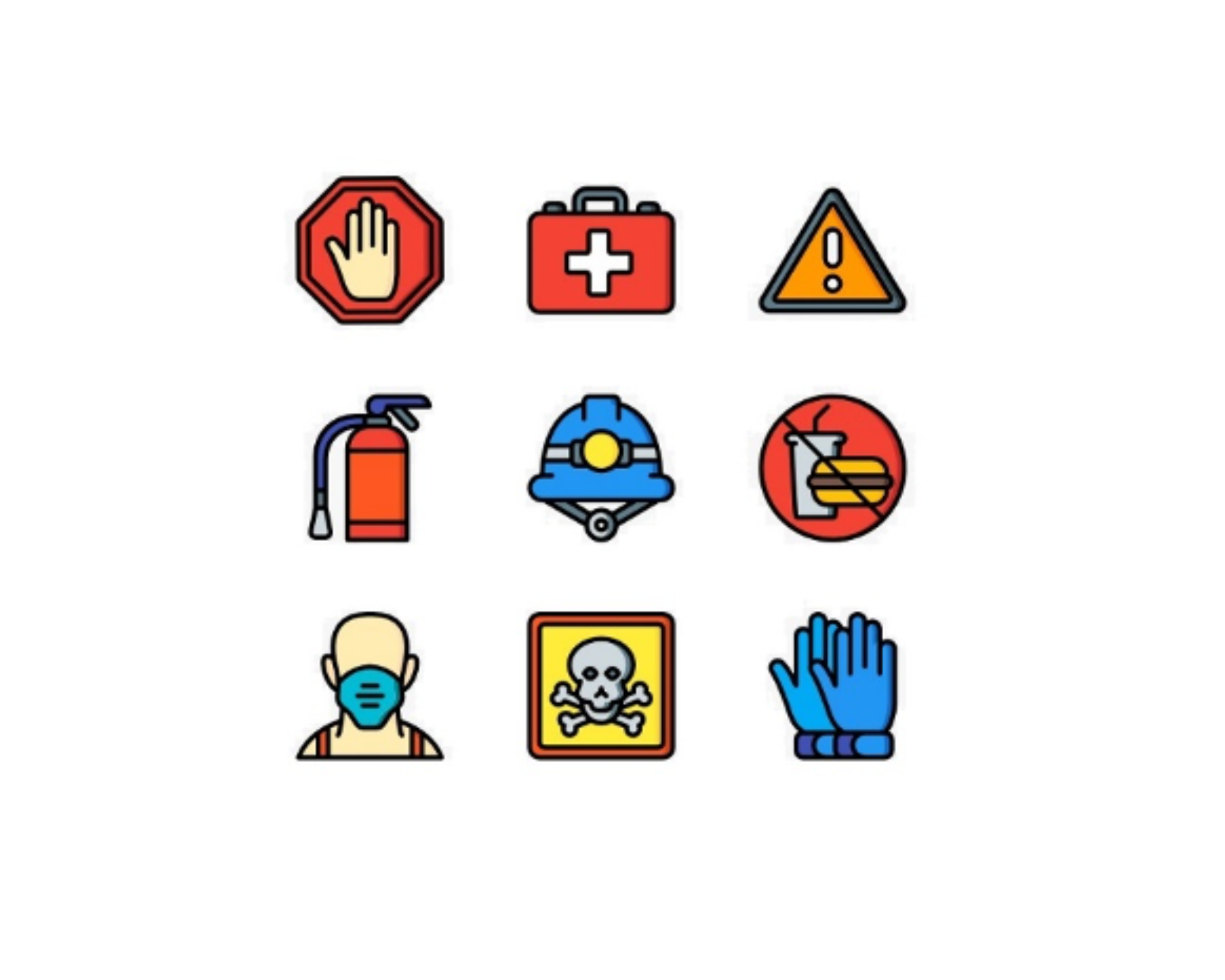
Risk Assessment
Risk assessment is a systematic process of identifying hazards and evaluating any associated risks within a workplace, then implementing reasonable control measures to remove or reduce them. This document evaluates the possible physical, chemical and ergonomical risks in each laboratory or workspace at nanoGUNE.
In the following link, you will find the risk assessment documents from all laboratories.

Emergencies
The purpose of the nanoGUNE Emergency Plan is the development, implementation and maintenance of the measures needed in the event of emergencies, as established in article 20 of the Occupational Risk Prevention Law (31/1995). This plan is defined as the organization of available human and material resources to control emergency situations that may cause serious damage to people or facilities. It is considered mandatory knowledge for all staff, who will try to interpret and apply it with the utmost efficiency, to avoid or mitigate risks, all within a framework of full collaboration.
You will also find the documents containing basic safety guidelines in case of emergency, how to act in case of illness or working accidents, as well as protocols of the use of products for chemical splashes.
In case of a working accident, the health insurance for all nanoGUNE employees is MUTUALIA Donostia (Paseo Arriola, 26). You must go there, prior information to reception staff or Gorka Arregui. Guest researchers must follow the guidelines of their employer or home institution.
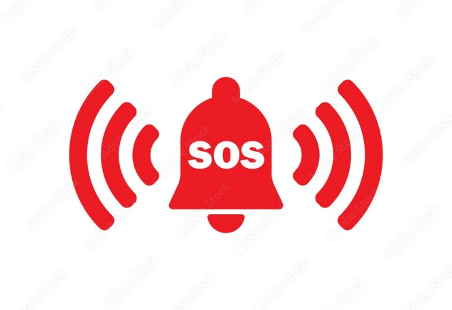
Medical check up
Medical examinations are annually carried out to provide periodic monitoring of the current state of the workers’ health based upon the risks inherent to their position, doing so while respecting people's right to privacy and dignity and while upholding the confidential nature of all information relating to workers' state of health. Our preventive health surveillance service (IMQ Prevención) will carry out health monitoring of all nanoGUNE employees. Administration staff will organize the periodic blood extraction and subsequent medical checkup. Guest researchers must follow the guidelines of their employer or home institution as they are not covered by this service.
In case you want to refuse the annual medical examination, you must sign and send the document you will find in the following link to Gorka Arregui (g.arregui@nanogune.eu).
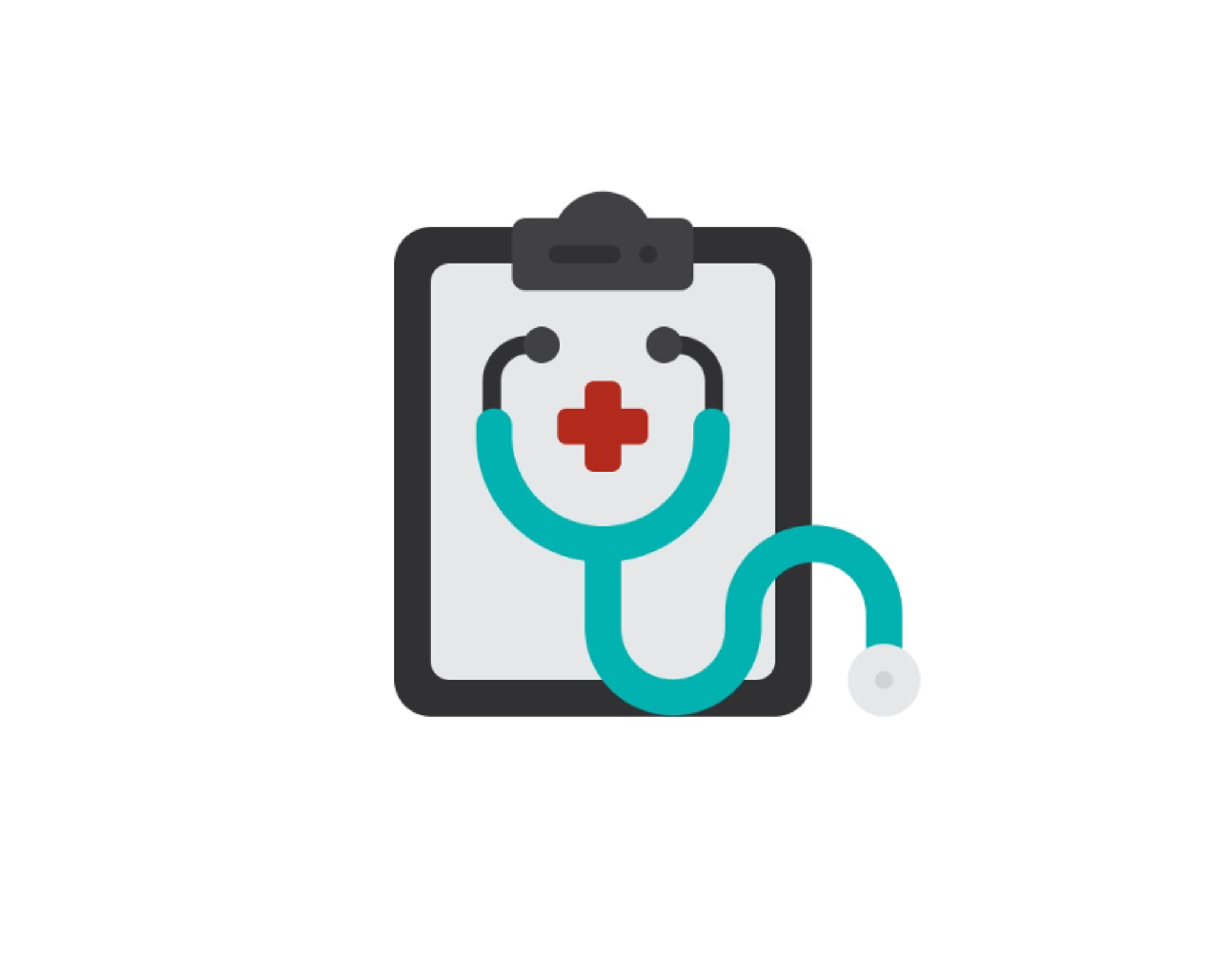
Maternity
There is a procedure for all female employees at nanoGUNE, to protect those in the gestation period, who have given birth or who are in the breastfeeding period, and their unborn/newborn/nursing infant(s) in compliance with Law 31/1995 on the Prevention of Occupational Risks, RD 39/1997.
After communicating a situation of pregnancy or breastfeeding, the risks associated with the job position must be determined and assessed to evaluate whether an adaptation or change of the job position is possible. If this is not possible, an application for financial assistance due to occupational risk will be submitted to the mutual insurance company.
Pregnant guest researchers must follow the guidelines and procedures stablished by their employer or home institution for these situations.
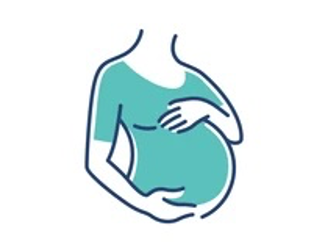
Coordination of Business Activities
The Coordination of Business Activities is established as the control measures for the prevention of occupational risks when workers from two or more companies are present at the same workplace. These measures are aimed at fostering cooperation between all the companies and workers involved. The goal is to ensure that such concurrent activities do not negatively impact the safety and health of the workers.
The Coordination of Business Activities is regulated by Law 31/1995 (RD 171/2004) and supports the prevention of occupational risks arising from business contracting and subcontracting. We refer to coordination when different companies share the same workplace. This must be done when clients, suppliers, maintenance technicians, external researchers and collaborators are going to carry out any activity at CIC nanoGUNE workplace.
In the following link, you will find the procedure for the coordination of business activities in nanogune.
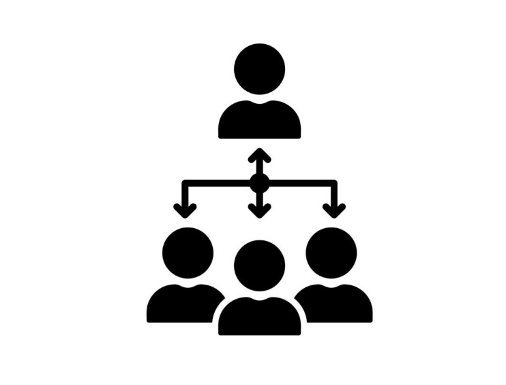
Standard Operating Procedures
A Standard Operating Procedure (SOP) is a set of established instructions or guidelines that describe the specific steps and processes to be followed to perform tasks consistently and efficiently, ensuring compliance with all safety measures within nanoGUNE facilities.
A new SOP is required when new working procedures that can entail additional risks that are not collected in the risk assessment document are going to be carried out at nanoGUNE facilities. In these cases, it is very important to describe in advance the working procedure and the emergency measures as well as the potential hazards.
In the following link you can find the list of updated SOPs and the template to fill in.
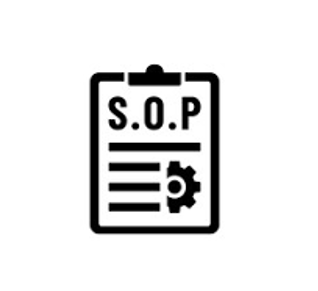
Biological safety level (BSL) 1 & 2 laboratories
At nanoGUNE, we have facilities classified as BSL 1 and BSL 2 in which we can work with biological agents of these categories.
BSL1-enabled laboratories are Labs 7, 8, 9, 10, 15, 23 and Eukaryote Culture Room, while BSL 2 agents can only be handled in Laboratory 4 and in the Bacteria Culture Room (within the Culture Room Facilities).
The person in charge of coordinating this research activity (Biosafety Officer) is Dane Ruscuklu (d.ruscuklu@nanogune.eu)In the following link below you can find all the documents and work procedures that need to be read and filled PRIOR the introduction of the biological agents in the institute. After filling the document (biosafety_checklist) with all detailed information about the type of microorganism/cells and the working conditions, it has to be sent to the Biosafety officer to authorize the entry and the work with that bio agents.
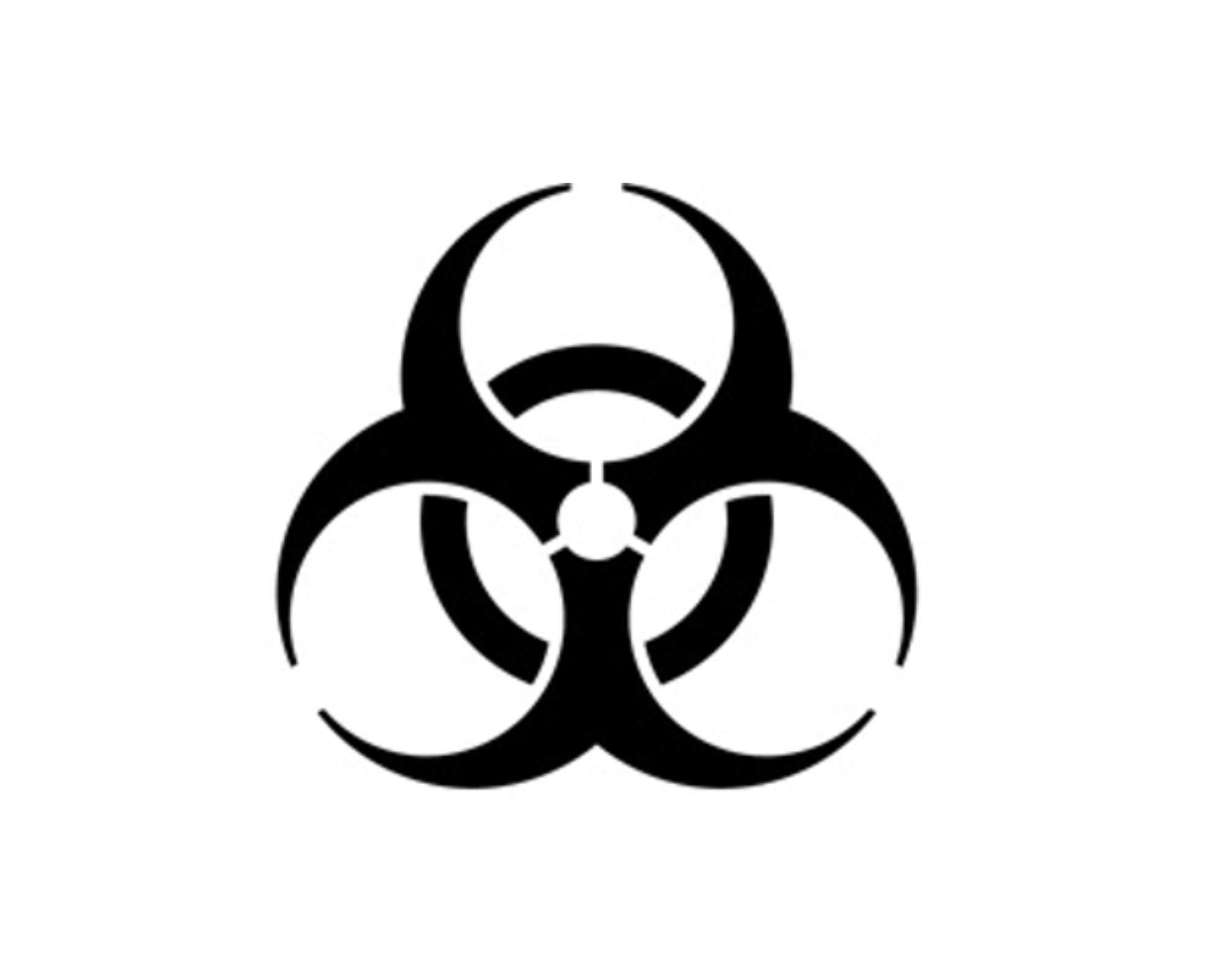
Sexual and Gender-Based Harassment
A Sexual and Gender-Based Anti-Harassment Protocol is in place at nanoGUNE, in order to (i) prevent sexual and gender-based harassment and (ii) act against it in case such an intolerable behavior occurs.
Confidential Counselors provide advice and assistance to anyone who may have suffered from sexual or gender-based harassment. A third person who knows about a harassment situation could also activate the protocol or ask advice to the confidential counselors.
Confidential counselors are Itziar Otegui (i.otegui@nanogune.eu | 943 574 024) and Laura Benedetti (l.benedetti@nanogune.eu | 943 574 049).
Publications
Through the links below, you will have access to scientific publications.
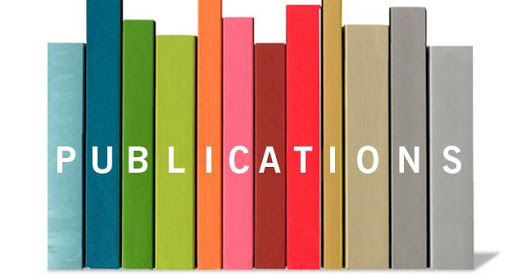
Research fields
CIC nanoGUNE focuses its research activities on the following four major strategic areas.
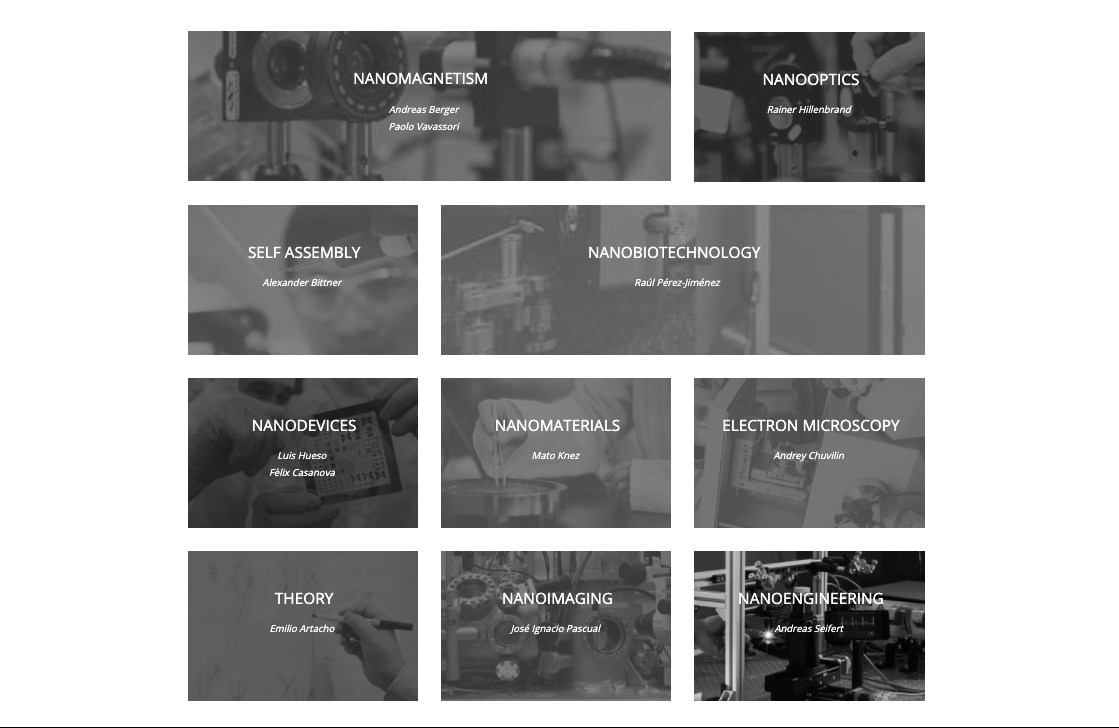
Calls
The projects management office of nanoGUNE provides regularly with the information of new calls that might be of interest for our researchers.

Technological surveillance
The purpose of the Technological Surveillance is to establish the basis for a systematic methodology for the analysis of the internal and/or external environment in order to capture, process and make available to the organisation information that is reliable, timely and structured and that allows decision-making with the highest possible chance of success, in this way putting competitive intelligence into practice.
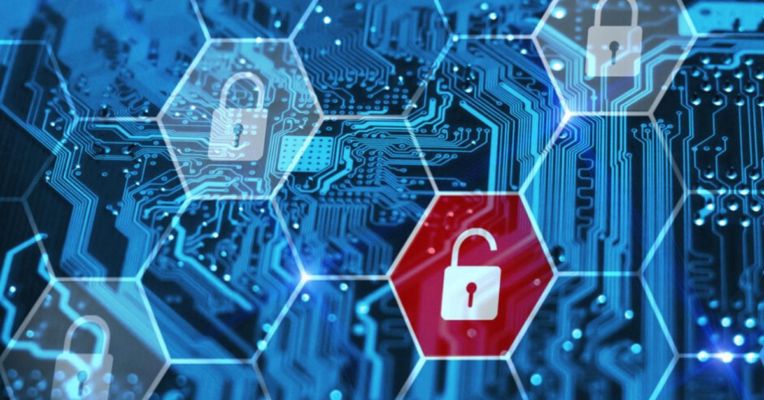
Ideas
An idea is a primary form of a new concept or scientific application. It is a generic view of the solution foreseen for the problem identified as an opportunity. The ideas are generated in each research group, by any of its members by accessing to "Ideas New". The ideas are archived for consultation within the scope of each research group through "Ideas Group" according to the degree of confidentiality that the author wishes to give to the new idea. Additionally, senior researchers can access all the ideas of their research groups and all researcher can get an overview of all existing ideas at "Ideas Summary" to establish a culture that supports innovation through collaboration.

Open access
Open access is the practice of providing online access to scientific information that is free of charge to the user and is reusable.
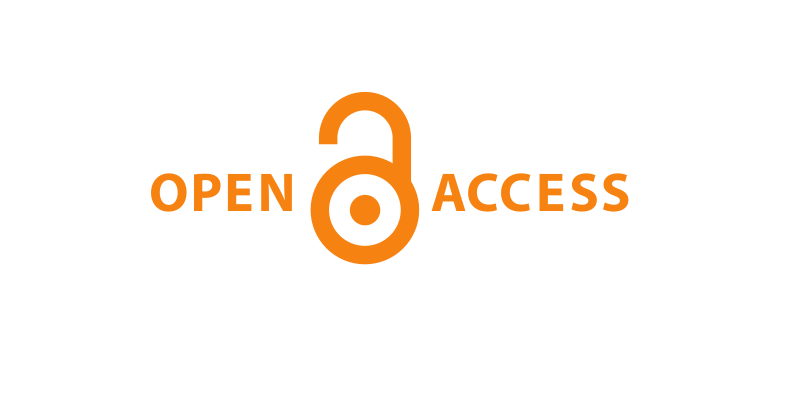
Projects
NanoGUNE projects office is responsible for the management of research projects providing support to the research team starting from the identification of funding opportunities and the preparation of project proposals. Successful proposals are carefully monitorized throughout the life of the project until the final reporting.
Dr. Yurdana Castelruiz is the Project Manager. Ainara Azurmendi is the Project Assistant.

Intellectual property
NanoGUNE has adopted internal intellectual property regulations to establish the rules and procedures to protect the intellectual property and sale of the results arising from the research activities carried out by the staff at nanoGUNE.
Dr. Ainara García-Gallastegui is the TechTransfer at nanoGUNE.
Inventions
NanoGUNE Researchers willing to protect a new invention must fill an invention disclosure form. This document incorporates the basis for a systematic methodology to disclose new inventions in order to analyse the value of a new invention as an economic asset for the organisation based on criteria of patentability and commercial potential.

Corporate identity
The corporate identity or corporate image represents the way in which a corporation, firm, or business enterprise presents itself to the outside world.
In this section, you will find:
- The corporate identity manual of nanoGUNE, which defines the identity information, messages and guidelines on the use of our brand, and collects relevant information about the visual adequacy of the brand and its graphic treatment.
- Files with our logo in different formats
- Templates that you can use in your daily work
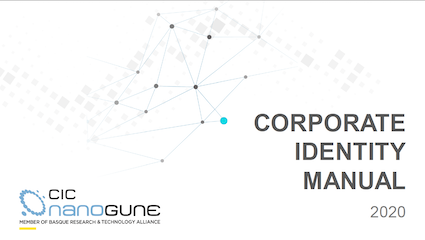
Outreach activities
We believe that the role of science and technology in society has never been so important as it is today. This is why we organize and participate in many science outreach activities, events and projects, with the purpose of spreading an egalitarian scientific culture and inspire a critical society.
It would undoubtedly be impossible to meet our commitment without you, the nanoGUNE community! Therefore, we are continuously gathering expressions of interest to participate in the Outreach activities: ¡Sign up the form below! (You will need to log-in to nanopeople to see the form).
Outreach activities are a great opportunity to improve communication skills, especially devoted to the general public. We encourage all the community to get involved and, especially predoctoral researchers and researchers with grants that require to carry out communication and dissemination activities. Volunteers will receive a certificate of participation.
For further information or to clarify any questions, you can get in touch with nanoGUNE's Outreach Manager, Itziar Otegui.
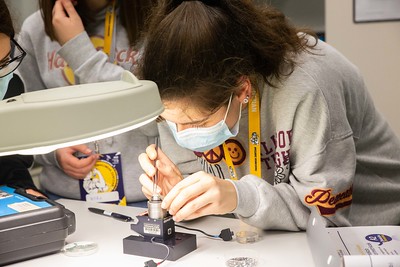
Corporate media
In this section you will find our corporate media, where we tell who we are, what we do, what our objective is, what our achievements are and, in general, everything related to our activity.
We strongly encourage you to read, follow, use and share us!
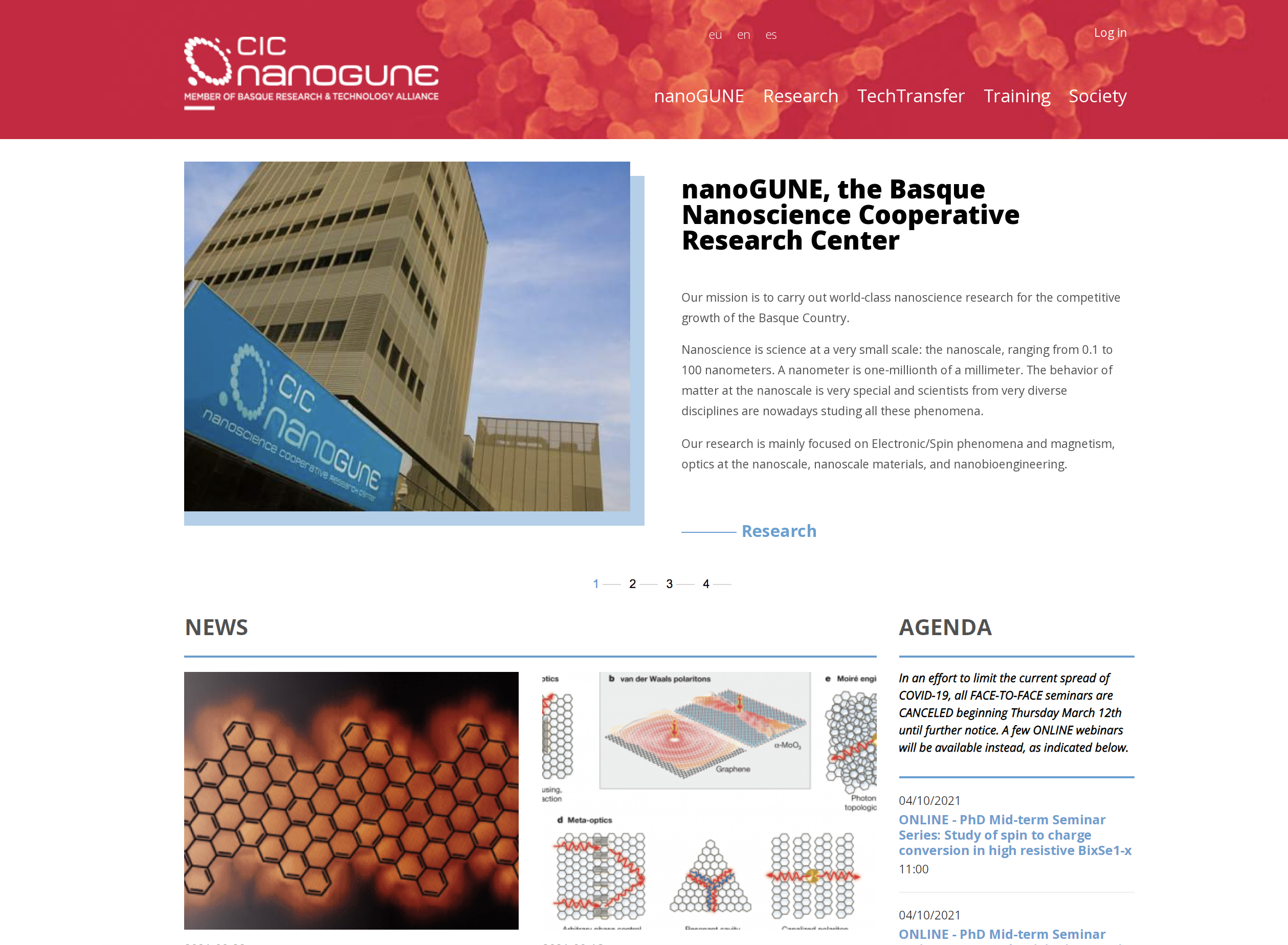
Scientific equipment and laboratories
Scientific equipment and laboratories at nanoGUNE facilities are managed by specialists and used by researchers from a wide variety of fields. The laboratory access and the use of nanoGUNE's scientific equipment requires previous authorization and booking.
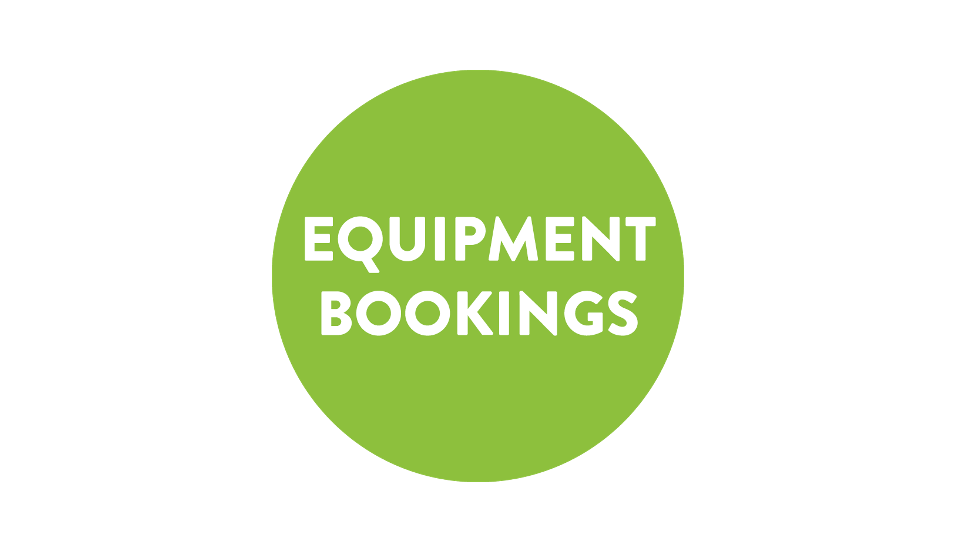
Cleanroom
The nanoGUNE cleanroom is dedicated to fabricate and characterize the properties of materials on the nanoscale. The cleanroom is approximately a 300m2 laboratory and contains an acoustically damped room for eBeam lithography processes.
The classification of the nanoGUNE cleanroom is ISO 5 (class 100), ISO 6 (class 1000), and ISO 7 (class 10000). The air purity is under strict supervision within the cleanroom. Air quality is controlled by Filter Fan Units except for the eBeam lithography room that has a dedicated air-handling unit.
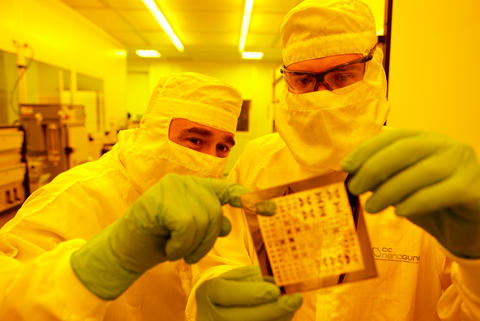
Biological safety level (BSL) 1 & 2 laboratories
(este contenido se redirecciona al término de taxonomía que está en Health & Safety
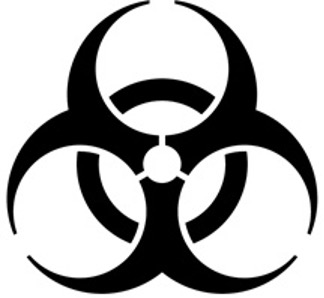
Facilities use
The nanoGUNE infrastructure was envisioned to fabricate nanoscale materials and characterize their properties on the nanometer scale and with sufficiently high sensitivity. The building size is 6 200 m2, including 15 ultra-sensitive laboratories and a cleanroom of nearly 300 m2.
Gorka Arregui is the Facilities Manager.
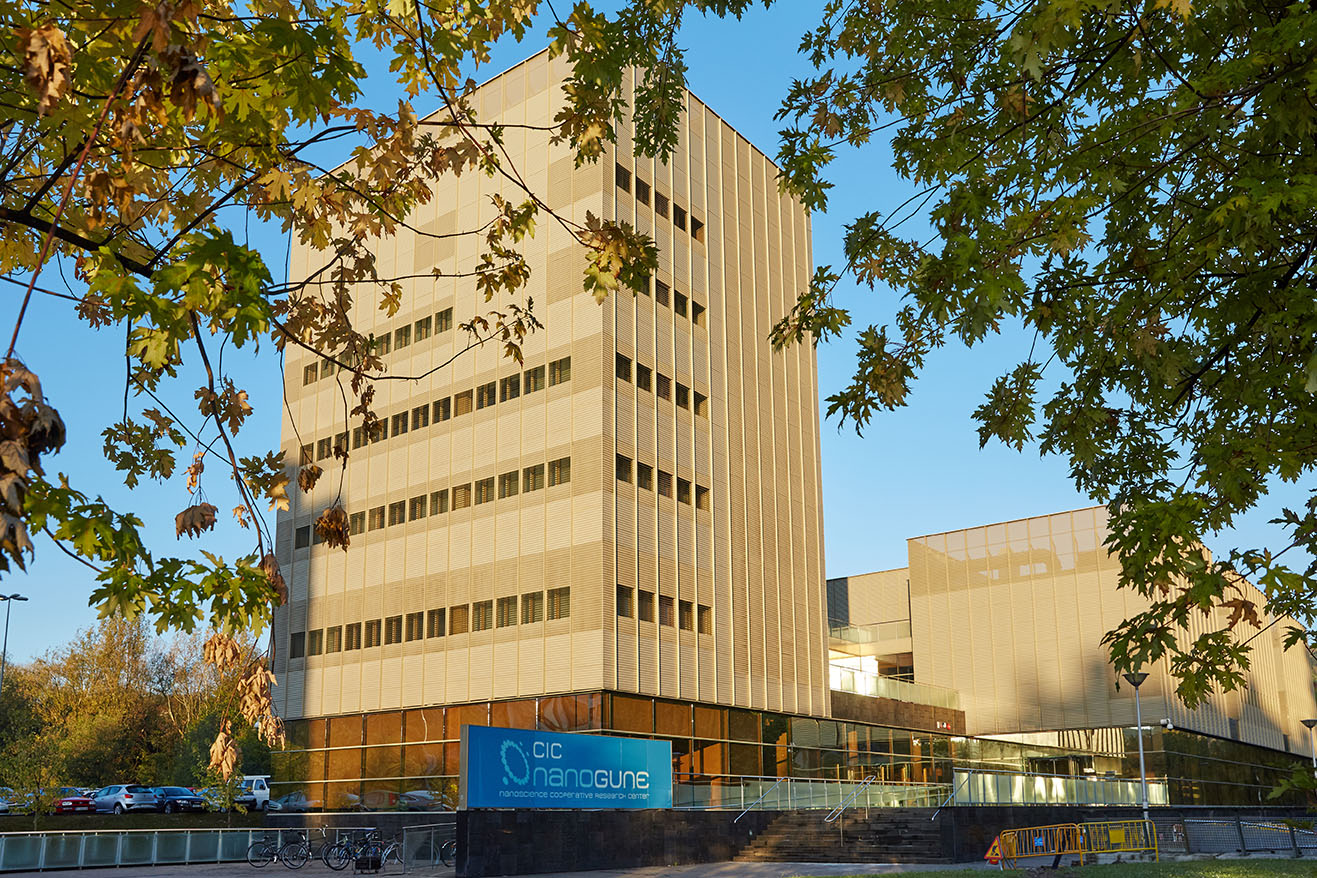
Maintenance
In order to improve our services, register every incidence and help the Innovation Management System implementation (based on the standard UNE 166002:2014), please place your maintenance/facilities incidences reports through the MantTest tool. Only requests reported to this system will be attended.
Note: IT incidences will not be managed by this system.
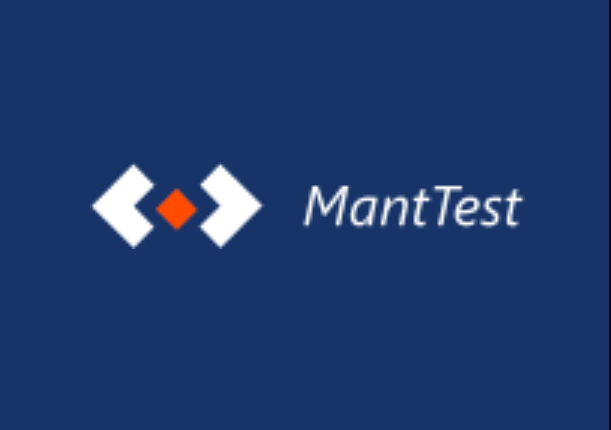
Meeting rooms and laboratories
Through the following links you can book a meeting room and request access to laboratories and rooms.
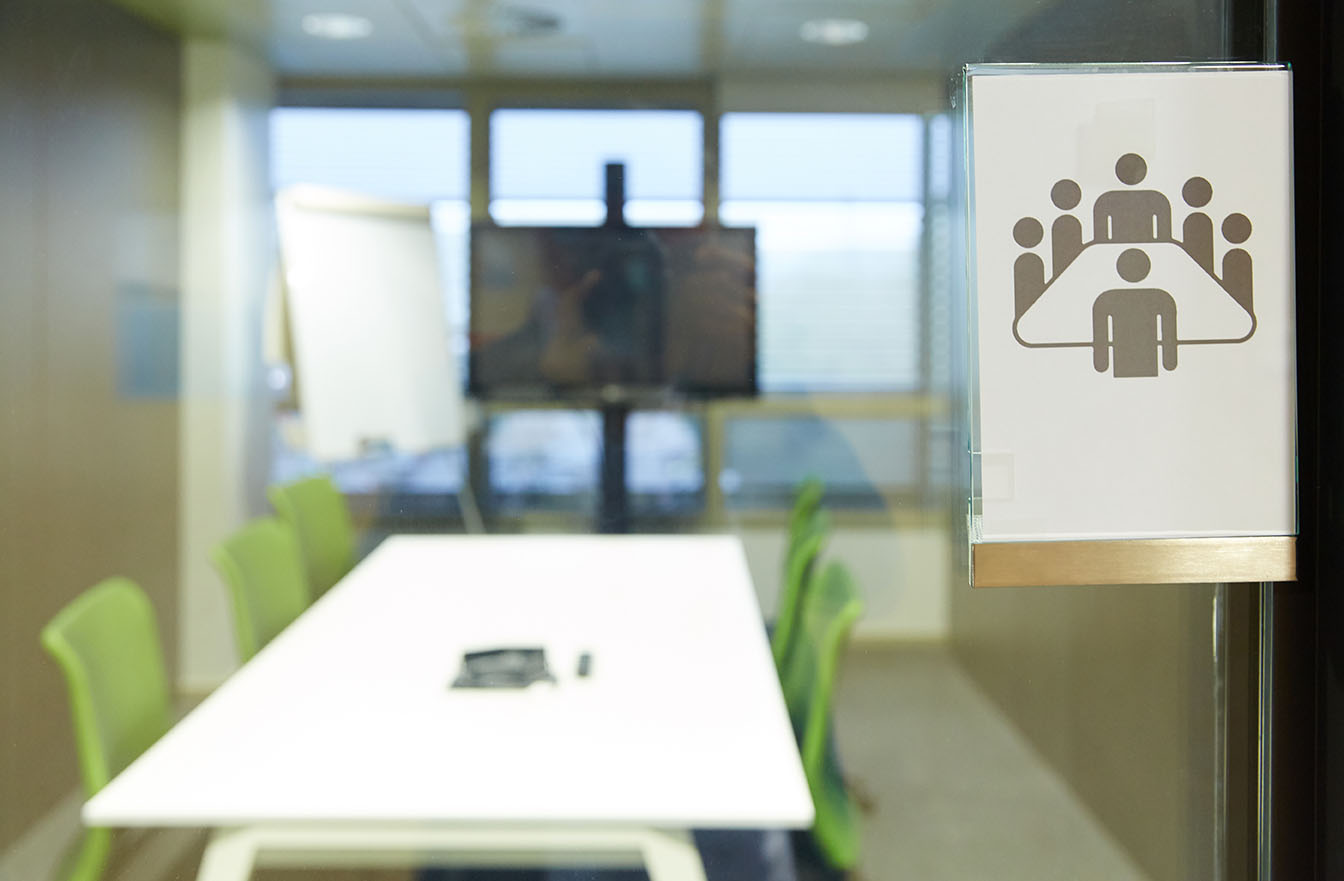
Library
NanoGUNE offers a large selection of books and journals to all researchers working with us. A specific software manages the loan and exchange of books and journals.
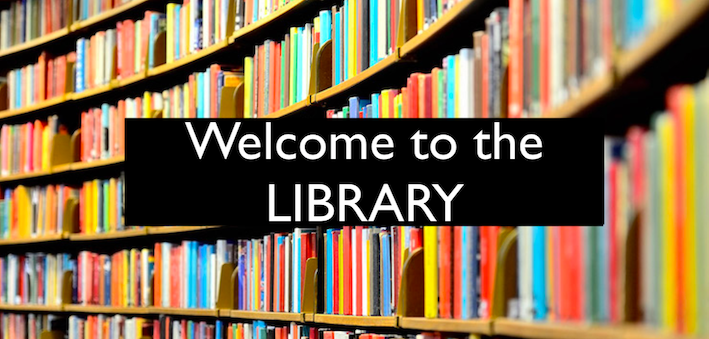
IT Services
IT services provides infrastructure and support to users for their IT-related activities. The Facilites Manager is the responsible for IT services with the collaboration of SEIN TIC that has been designated as the external IT service supplier.
For a connection from outside of nanoGUNE a VPN connection is required.
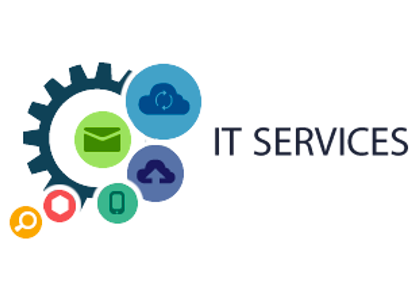
Purchases
NanoGUNE, as a contracting authority, must observe strict compliance with the Law 9/2017, of November 8, on Public Sector Contracts in the management of purchases.
Based on the expenditure limits regulated by the Law 9/2017, nanoGUNE differentiates between “Direct Purchases” (contrato menor), which are those where the expenditure is less than €15,000 (excluding VAT), and “Non-direct Purchases”, which involve an expenditure greater than or equal to €15,000 (excluding VAT).
The Law 6/2018, of July 3, on General State Budgets for the year 2018 introduced a modification in the procurement law raising the limit for purchases (“contrato menor”) from 15,000 euros to 50,000 euros (per supplier, per year) provided they are not intended for general services and infrastructure.
The Finance Director must be contacted for any question related to purchases.

IMS improvement
An Innovation Management System (IMS) based on the standard UNE 166002:2014 is based on the application of the methodology known as the plan-do-check-act cycle (PDCA). Four essential aspects of the cycle are identified:
- Plan: Planning.
- Do: R&D and innovation process.
- Check: Assessment.
- Act: Improvement.
The organization shall continually improve the suitability, appropriateness and effectiveness of the system through the use of R&D and innovation strategy and policy, leadership, planning and objectives, processes that support R&D and innovation and the assessment of performance.
The organization shall identify deviations and/or non-conformities and establish appropriate corrective actions to eliminate the causes, or establish actions to improve the effectiveness and the results of the IMS.
The implementation of improvement measures shall be monitored taking into account the deadlines established, if the tasks set out are completed and if the expected impact of the measures on the system have been reached. Existence or potential occurrence of similar deviations and/or non-conformities shall be determined.
